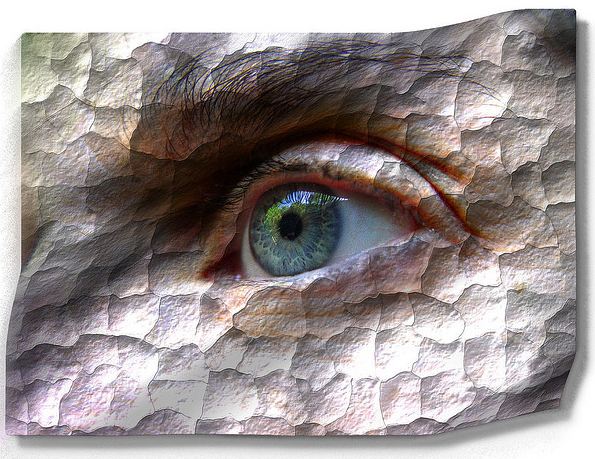The causes of dry eyes during the winter and simple ways to prevent them.
When many people are talking about the long winter months, they often refer to it as the “wet season.” Between the rain that slowly turns to ice, the frost on our cars and windows, and the snow that wraps up our world in a white blanket for a few months out of the year, it is easy to see where this nickname comes from. However, while the winter months may make the outdoors a little wetter than normal, the atmosphere is actually very dry during the winter season.
When you wake up after a long nights sleep in your toasty bed, you may notice a few side effects that come with hibernating inside of your heated winter home―a dry, tight face that flakes, an itchy body that seems to suck up every ounce of your lotion. However, your skin is not the only part of your body that lacks moisture during the winter months. Dry eyes are another common side effect of the dry season, and can be equally or even more uncomfortable than itchy, tight skin.
Dry eyes that burn and ache are just common side effect of the cold winter winds outside and the dry, heated air of our homes inside. Being exposed to either of these atmospheres can cause a sudden onset of moisture evaporation inside of our eyes, and our tear glands simply cannot produce fluid quick enough to maintain the protective, moist coating that our eyes require to stay hydrated. The result is dry eyes that may cause blurred vision or a scratchy, burning sensation.
Luckily, there are several simple ways that you can combat dry eyes during the winter months. Here are our tips for keeping your vision clear and your eyes moisturized during the cold winter season ahead:
Sunglasses
Whenever you are outside in the frigid, wicked winter winds, you should take extra protective measures to make sure that your eyes are not exposed to the wind and the excess cold. One of the best ways to shield yourself from these drying elements is with sunglasses. These will not only prevent the cold winter wind from hitting your eyes directly, but they will also make sure that your eyes are not exposed to the bright light outside. Sunglasses also will act as a protective block against whipping winds that cause evaporation of your eye’s tear film.
Humidifier
During the winter months, many people find that they have dry eye problems that are caused by dry heat or air heaters in their homes. While these toasty electronics may keep the bitter winter temperatures outside of your home, they significantly decrease the moisture from your air. Therefore, you need to make sure that you are maintaining a healthy level of moisture in your home with a humidifier. This will prevent fluid evaporation in your eyes and will help to combat burning, itchy eyes before they begin.
Eye Drops
If your dry eye symptoms worsen throughout the season and become unbearable, you may want to consider using lubricating eye drops that can help to ease common pain and itchiness brought on by dry eyes. However, because there are so many over-the-counter artificial tear brands to choose from, make sure that you ophthalmologist to ensure that you are using drops that are suitable for your condition.
The winter season can be a great time to get outside and soak up the smells and sights of the season. However, make sure that you follow these simple steps for combating dry eyes to make sure that you do not fall victim to the hazards of the cold, dry winter weather.
Image: Source
